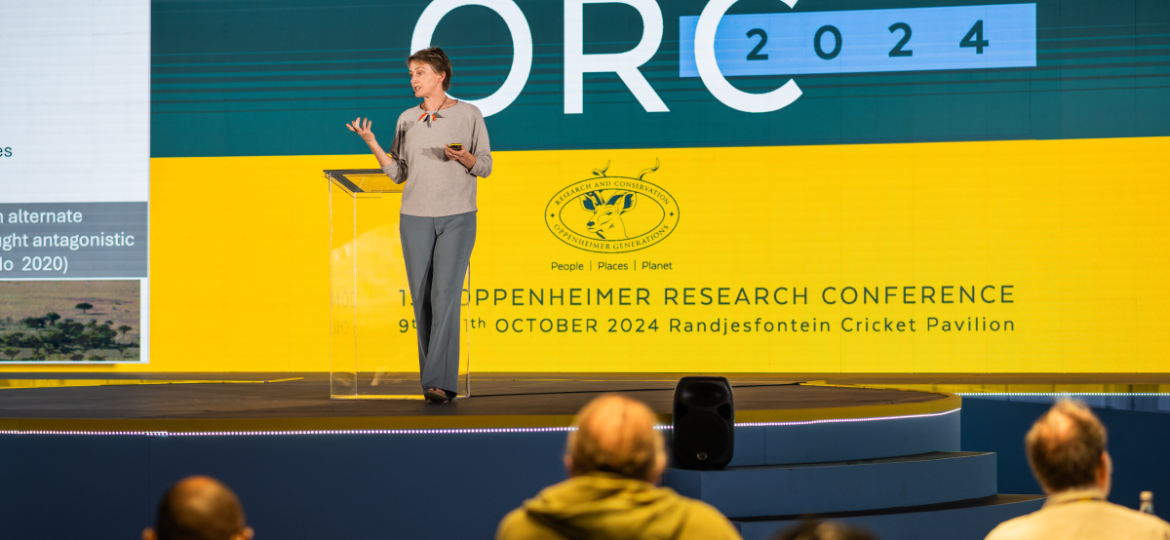In a world grappling with environmental crises, Africa must take the lead in addressing its environmental challenges.
Research models for impact
Yves Vanderhaeghen interviews the team spearheading an operation to rid Marion Island of mice which are annihilating seabirds and other life.
Generations of coal miners relied on canaries in cages as an early-warning system to detect toxic or explosive gases. The birds, being more sensitive than humans, would die or get sick first, giving miners a chance to escape or put on protective breathing equipment.
The Oppenheimer Research Conference creates a platform for researchers and practitioners in conservation sustainability to share their knowledge to increase its impact. Here are a few snap shots of presentations.
The Oppenheimer Research Conference creates a platform for researchers and practitioners in conservation sustainability to share their knowledge to increase its impact. Here are a few snap shots of presentations.
The Oppenheimer Research Conference creates a platform for researchers and practitioners in conservation sustainability to share their knowledge to increase its impact. Here are a few snap shots of presentations.
The Oppenheimer Research Conference creates a platform for researchers and practitioners in conservation sustainability to share their knowledge to increase its impact. Here are a few snap shots of presentations.
The Oppenheimer Research Conference creates a platform for researchers and practitioners in conservation sustainability to share their knowledge to increase its impact. Here are a few snap shots of presentations.
The Oppenheimer Research Conference creates a platform for researchers and practitioners in conservation sustainability to share their knowledge to increase its impact. Here are a few snap shots of presentations.
Tumi Mphahlele has, found a way to turn one of the “100 of the World’s Worst Invasive Alien Species” (water hyacinth) from a destructive pest into one with an ecological and economic purpose.












